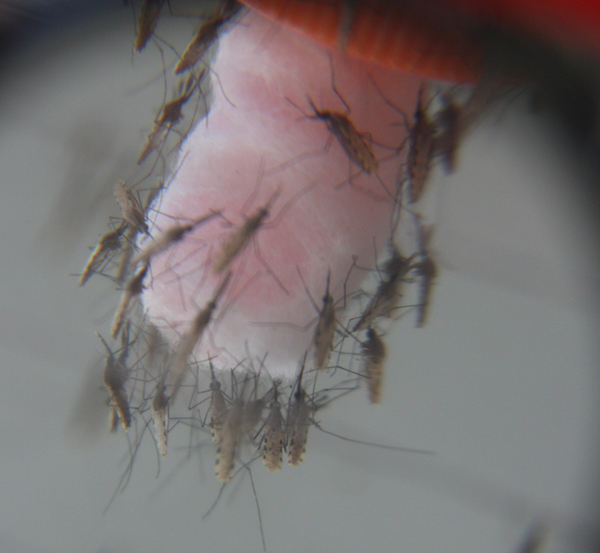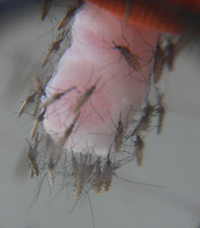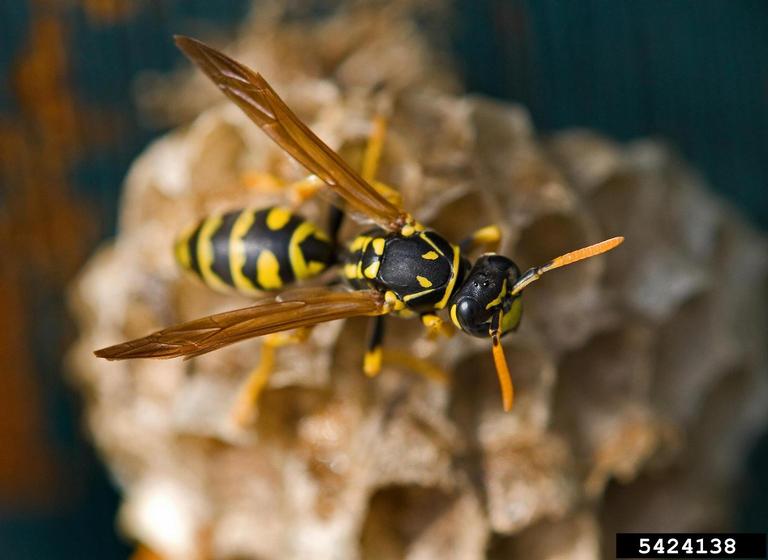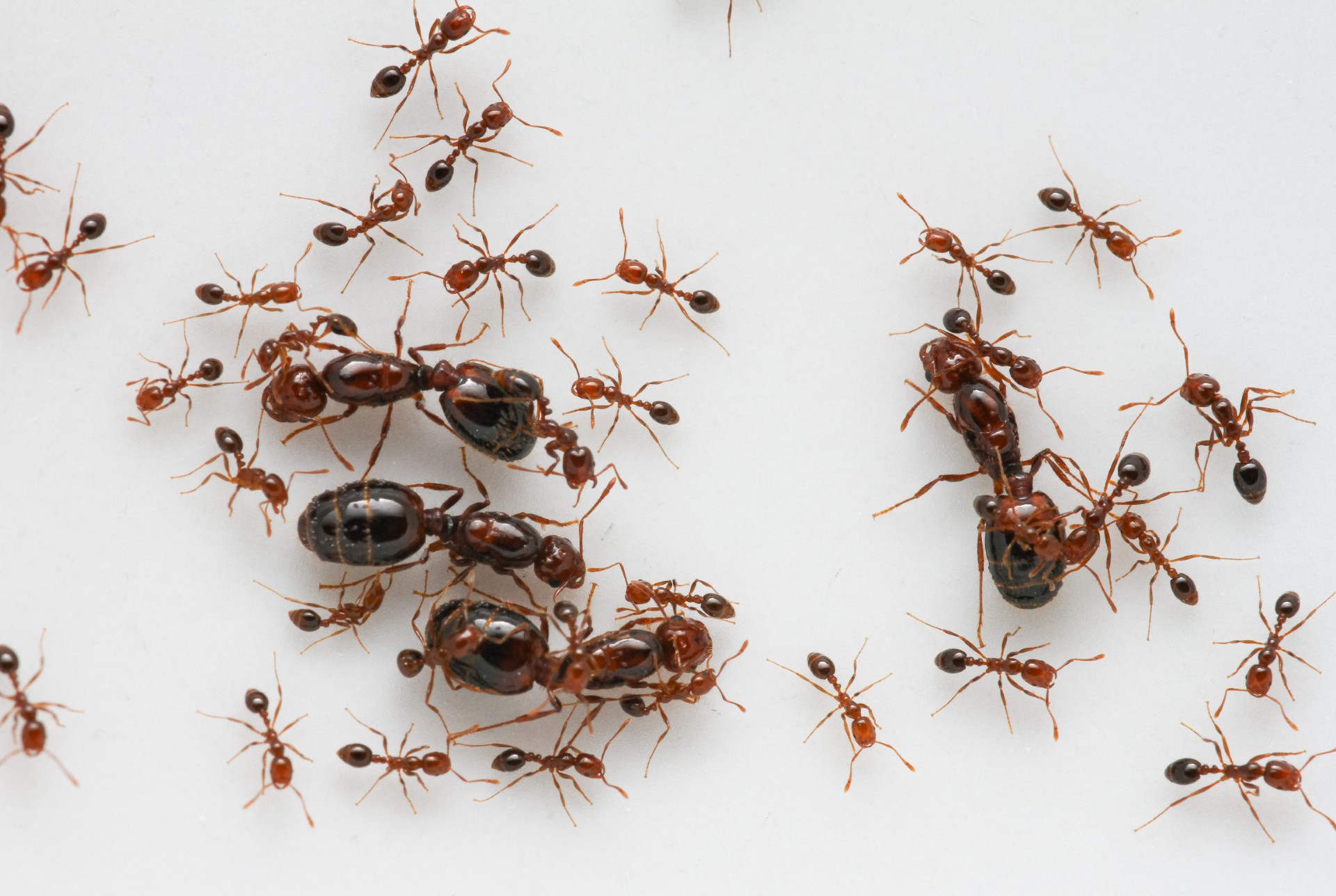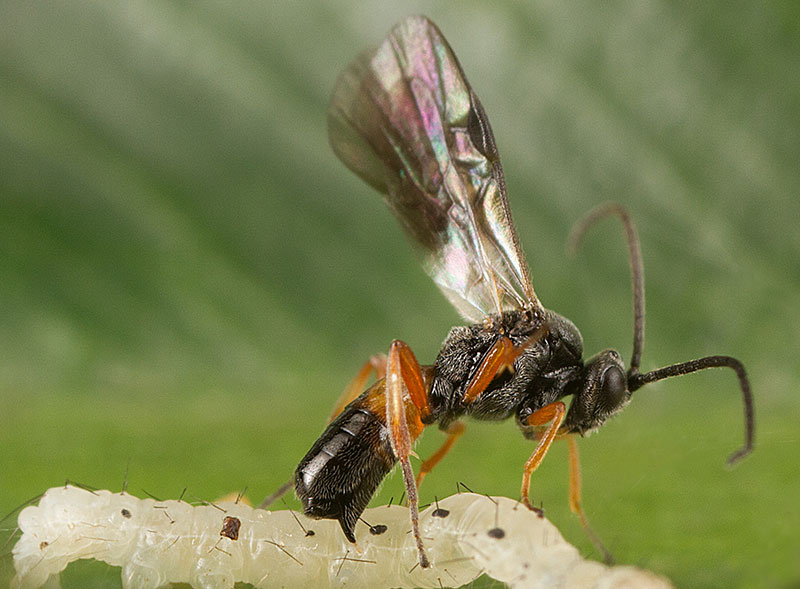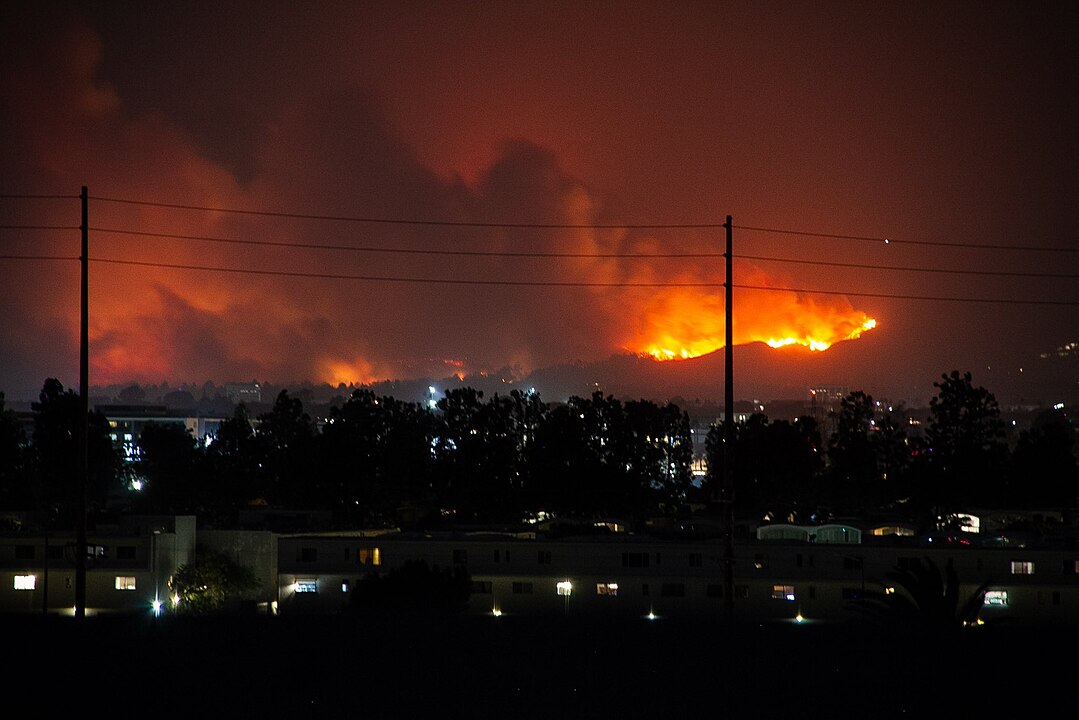West Nile virus usually peaks between Aug. 15 and Sep. 15 in Georgia, but this year doctors are seeing an earlier start.
Entomologists and public health officials are worried that a near record number of Georgians will be sickened with West Nile virus this year.
“Having 14 human cases (in Georgia) by mid-August is very unusual,” said Elmer Gray, a public health entomologist with the University of Georgia College of Agricultural and Environmental Sciences. “We’re just entering peak mosquito season — and certainly peak West Nile virus season — and it will keep going on until the days start cooling off and getting shorter.”
Nationwide, public health officials have reported 693 West Nile virus diagnoses in almost 40 states, with Texas bearing the brunt of the outbreak with 537 cases and 19 deaths as of Aug. 22, according to the Centers for Disease Control and Prevention. Public health officials in Dallas County, Texas, have declared a public health emergency as they grapple with the mosquito-born, flu-like illness, according to a news release issued by Dallas County.
Older people and people with suppressed immune systems are particularly vulnerable to the disease, but it has seriously sickened some healthy people, too. About 1 in 5 of the people exposed to the virus through a mosquito bite will show symptoms, but most of those will be minor. Many people assume they have a summer cold or flu and will go undiagnosed, Gray said.
Since West Nile virus was first recorded in Georgia in 2001, the state’s reported caseload has varied from as few as six cases to as many as 55 in 2003 and 2007, respectively. In 2011 Georgia saw 25 cases. The severity of this year’s outbreak has to do with the weather.
“The species that transmits West Nile virus — the southern house mosquito — actually does well when it is drier,” Gray said.
Southern house mosquitoes often develop in storm drains, which make better homes when they’re not flooded with storm water. When there’s not much rain, these mosquitos thrive in the puddles and basins of standing water left in slow moving drainpipes.
The Georgia cities that have seen the most West Nile virus activity over the years are those with older storm sewer systems, like Albany, metro Atlanta and some of the older parts of Savannah and Augusta, Gray said.
Birds — the southern house mosquito’s favorite prey and the main carriers of West Nile virus — also crowd around water sources during a time of drought. A more concentrated bird and mosquito population means the virus can spread from birds to mosquitoes to people more quickly, Gray said.
While southern house mosquitos are more prevalent in some regions than in others, Gray warns that everyone in the state should take precautions against being bit by mosquitos and possibly contracting West Nile virus.
Wearing light-colored clothing will help keep mosquitos at bay, but the most effective thing people can do to protect themselves is use insect repellent whenever they’re outside in a mosquito-prone area — like on a ball field, out in the yard or out in the woods, Gray said.
Gray prefers products with DEET because they have been tested and proven safe for children as young as two months old. There are several other commercially available, EPA approved repellents, like picaridin, lemon eucalyptus oil and IR3535.
“I don’t recommend trying a homemade repellent,” Gray said. “Mosquito-born diseases are serious. They cause encephalitis — an inflammation of the nervous system. People need to take this seriously.”
In addition to repelling the pests, people can help cut down on the mosquito population by getting rid of anything around their home that could hold standing water and provide the insects with an additional breeding habitats. They can also purchase larvacidal briquettes to use in fishponds, rain barrels or rain gardens that can’t be emptied.
Homeowners also need to make any needed repairs to window screens to keep mosquitoes from coming inside the house.
For more information about West Nile virus, visit Georgia’s Public Health website at http://health.state.ga.us.

